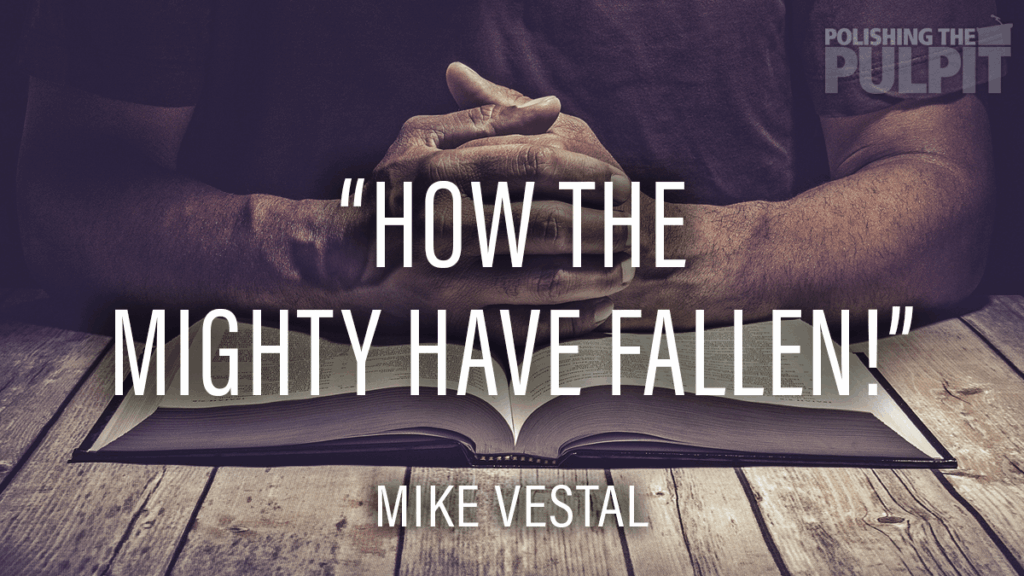These words were part of David’s lament for Saul and Jonathan upon hearing of their deaths (2 Samuel 1:19-20). Those in positions of responsibility and influence can fall, as did King Saul, and it’s something that can happen to any of us too. No one in the church today – not elders, preachers, deacons, teachers or anyone – is above the possibility (1 Corinthians 10:12). The possibility of falling must ever be considered, yet it must be balanced with an appropriate sense of assurance that comes from a vital relationship with God and His word (Hebrews 3:12; Jude 20-21, 24-25).
However, an amazing thing about Saul’s life is the fact he remained Israel’s king for years after God had rejected him (1 Samuel 15:23; 16:1). Surely one of the saddest statements in the Old Testament is that “the Spirit of the Lord departed from Saul” (1 Samuel 16:14; 18:12). Saul continued to hold on to a position for some time after he no longer possessed the necessary character and blessing of the Lord so vital to leadership. One must thoughtfully and respectfully ask if the same possibility might occur today. One may have a position of influence in the Lord’s church, but tragically have forfeited their character and integrity, their relationship with the Lord and their wholehearted commitment to being a man or woman of God. And from Saul’s life, we learn much about the reasons why.
Saul Put Himself Above God’s Word. Read passages like 1 Samuel 13:9-14 and 15:9-35 and one can see this was a perpetual problem for Saul. And it can be for Christians today. Will we place ourselves ABOVE God’s word or UNDER it? Will we truly submit to God? (James 4:6-12).
Saul Felt “Compelled” to Do Wrong. How interesting is the phrase in 1 Samuel 13:12, “So I forced myself.” Saul had a tendency to think, “the ends justify the means.” If we think that circumstances or the impulse of the moment outweigh the will of God we are sadly mistaken. Saul well illustrates how presumption and impetuosity can get one into a great deal of trouble!
Saul Lacked Accountability. “Faithful are the wounds of a friend” (Proverbs 27:6). Saul somehow rationalized away his accountability to the Lord, to his friend Samuel and to the nation of Israel. Surely it is a danger sign when we become blind to the priority and responsibility of accountability.
Saul Was Consumed by Jealousy and Felt Threatened by Others. In no place is this more evident in Saul’s life than in 1 Samuel 18:7-9 as he flies into a rage when the people cry, “Saul has slain his thousands, and David his ten thousands.” This is a serious form of spiritual heart trouble (cf. 1 Corinthians 13:4-7). Can we not be humbled by and appreciative of the fact that God mightily blesses and utilizes others?
Saul Would Seemingly Repent Only to Fall Back Into the Same Sinful Patterns. See 1 Samuel 24:16-19 and 26:21. Interestingly, no none said “I have sinned” more than King Saul. Yet he failed to fill the void in his life with a deeper love for God and a stronger determination to walk in His ways. Apart from our Lord, even a king can do nothing! (John 15:4-5; Ephesians 6:10). There’s much for all to learn from Saul’s tragic life.
Mike Vestal


